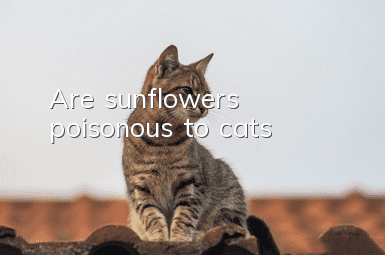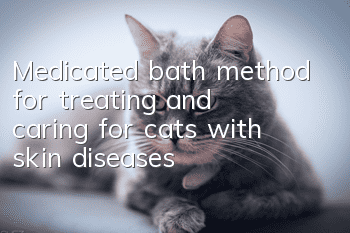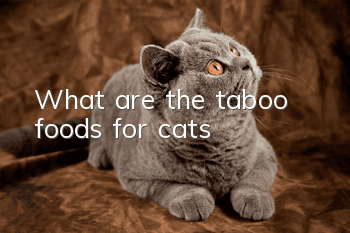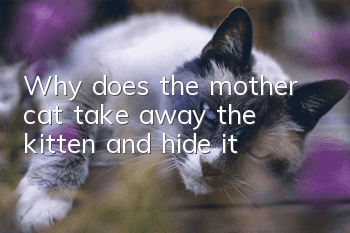Are sunflowers poisonous to cats?

Sunflower is a complete genus of approximately 70 species. Some of them have traveled far beyond their origins. In contrast, other species face serious risks of extinction. That being said, when people think of sunflowers, there's a good chance they're thinking of common sunflowers. It is said that this plant was domesticated by Native Americans in prehistoric times. Generally speaking, sunflowers are thought to have been domesticated in what is now the southeastern United States about 5,000 years ago. However, the plant was probably domesticated 4,600 years ago in what is now Mexico.
Whatever the case, sunflowers have proven to be extremely popular, as can be seen in how they are produced by many people in many places. Sunflowers have many uses. First, their seeds can be eaten in a variety of ways. For example, sunflower seeds can be processed into sunflower butter, a common substitute for peanut butter due to allergies. Additionally, these seeds can be squeezed to extract sunflower oil. The resulting cake can then be used as livestock feed. Apart from this, sunflowers have several other notable uses. First, they are a very popular ornamental plant, so they have become an invasive species in some areas. Second, they can extract toxic components from the soil and are therefore a good choice for phytoremediation.
1. Are sunflowers poisonous to cats?
It is not uncommon for cats to come into contact with sunflowers. Therefore, cat owners will naturally wonder whether they are toxic to cats. Fortunately, sunflowers are thought to be otherwise. Unfortunately, interested individuals should still be wary when cats interact with these plants, as there are other potential complications. In particular, cats are not unfamiliar with the occasional bite of a sunflower. One or two bites shouldn't be a cause for concern. Instead, the underlying problem is that the cat may be too accustomed to eating sunflowers. If this happens, well, it's safe to say that they're not very good at digesting fresh plant matter. Therefore, eating too much sunflower can be a good digestive problem for cats.
2. Can cats eat sunflower seeds?
Next, some cat owners may ask whether cats can eat sunflower seeds. If so, they should know that cats can eat sunflower seeds. The problem is, this isn't the best idea because there are better treats for our feline companions. Interested parties can most likely guess that sunflower seeds are packed with nutrients. However, cats should get the nutrients they need from their daily diet, so there isn't much nutritional reason to feed them these seeds. Also, most cats don't seem too interested in sunflower seeds, so it's a good idea to offer them something specifically for them.
That being said, if cat owners choose to feed sunflower seeds to their cats, there are some important things they should keep in mind. Sunflower seeds should be shelled first. Cats are not very good at digesting shells, so leaving them on will increase digestionChances of problems. To make matters worse, the shells of sunflower seeds are sharp when broken, so internal injuries are also possible. Secondly, these sunflower seeds should be cooked. Raw sunflower seeds are not toxic to cats. Unfortunately, they have some other problems. One possibility is that sunflower seeds, like any other food, can be contaminated by harmful bacteria and other microorganisms, meaning cooking is crucial to minimizing this threat.
Another possibility is that cooked sunflower seeds last longer than uncooked ones because they contain less water. Raw sunflower seeds can be stored for quite some time. However, they spoil faster than their cooked counterparts. Third, these sunflower seeds should be undried. Sunflower seeds themselves are not toxic to cats. Sadly, it's not uncommon for sunflower seeds to have enough added to flavor them. For example, cats are more sensitive to salt than humans, so it's important for them to avoid eating things flavored with salt.
3. Can cats eat sunflower oil?
In addition to sunflower seeds, sunflower seeds are also used to produce sunflower oil. Once again, sunflower oil is not toxic to cats. However, this is not something cats should eat as there are potential risks but either nothing or almost nothing in potential reward. For example, sunflower oil contains high amounts of fat, which can lead to pancreatitis and other health problems in cats who eat too much. Likewise, sunflower oil contains a lot of calories, which can lead to weight gain in cats. Best of all, it is a natural vegetable, so it will never be suitable for cats when they are obligate carnivores.
4. Summary
When cat owners are concerned about whether their cat will be able to eat, they should consult their veterinarian. The species as a whole may or may not have the ability to eat specific things, but there is no guarantee that a specific cat will have the ability to do so, as different cats can be very different in this regard, just as different humans can be very different in this regard Same. Veterinarians have access to their cat's medical information, so a professional should know if their cat can eat it. Furthermore, it's one thing to know that a cat can eat, but it's another thing to know how much a cat can eat. If cat owners feel that their knowledge in this area is insufficient, a veterinarian is in a good position to introduce this topic to them. Of course, cat owners should start by feeding their cats new things in moderation. They can never be 100% sure of what will happen. Therefore, caution is required to minimize the possibility of any complications.
- What nutrients do you need to supplement when you are pregnant? What are the best foods to eat when you are pregnant?
- Can cats recover from depression on their own?
- How to read a cat's body language?
- What should I do if my cat’s hair follicles are damaged and no hair grows?
- How long will a Ragdoll cat be in heat?
- How to dry clean cats
- Why do cats still want to go out after being neutered?
- What to do if a kitten has cysts all over its body
- Will a cat still recognize its owner after it is over one year old?
- Can cats eat white fungus?



